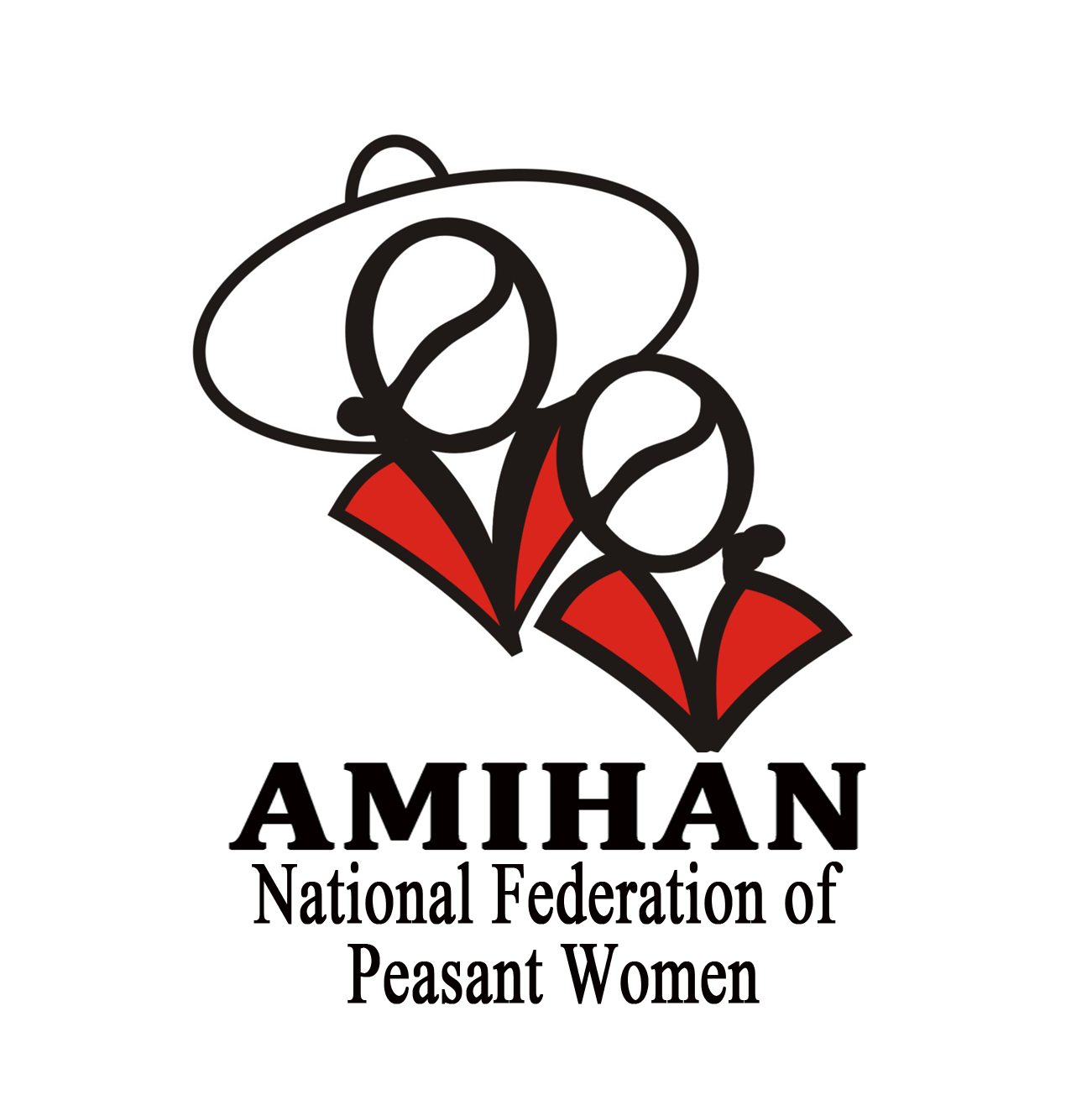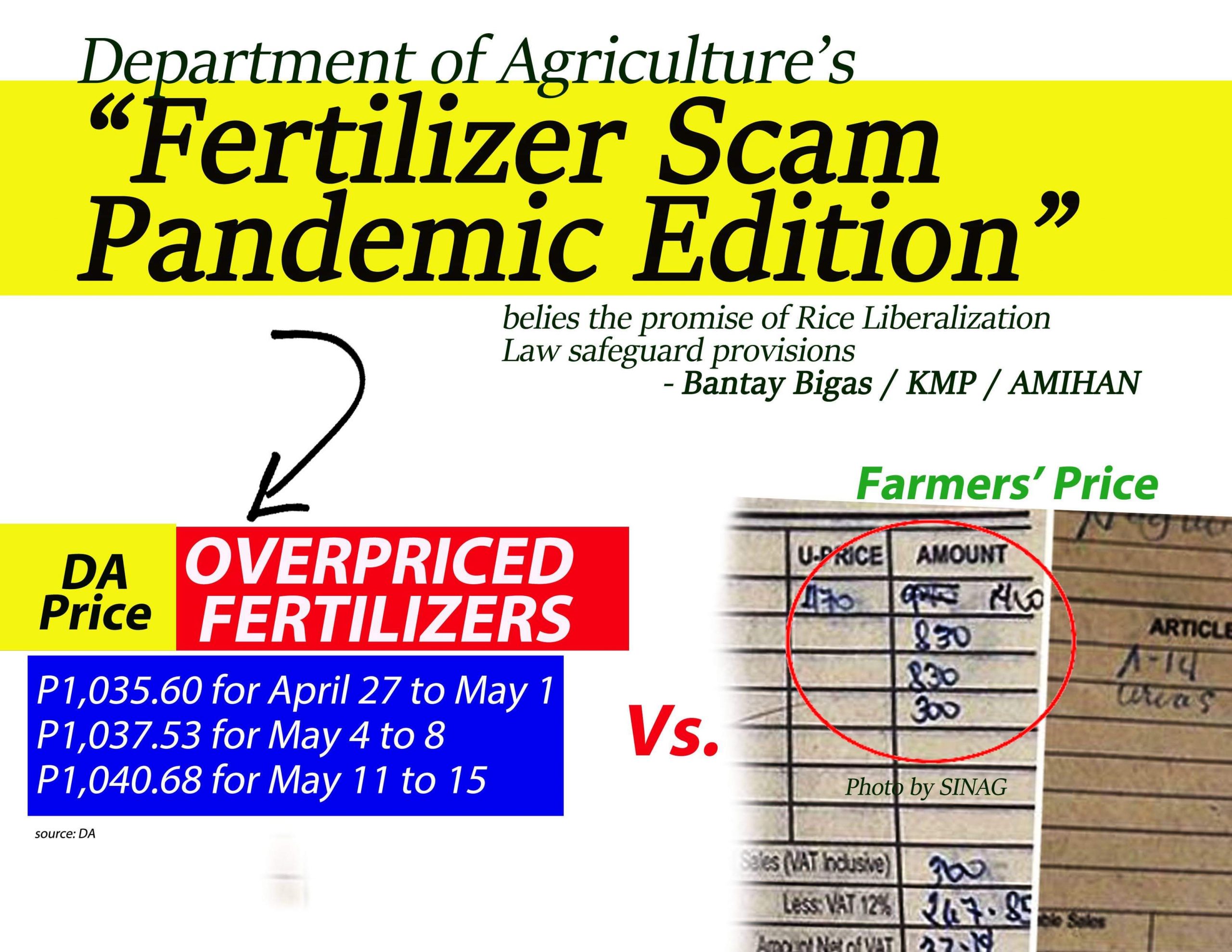Manila, Philippines – The rice watch group Bantay Bigas and Amihan National Federation of Peasant Women denounced the reported overpricing of fertilizer by the Department of Agriculture (DA) and claimed that irregularities involving the agency belie the promise of safeguard provisions in Republic Act 11203 or the Rice Liberalization Law. Earlier, peasant groups such as the Kilusang Magbubukid ng Pilipinas (KMP) claimed that the 1.8 million bags of fertilizer procured by DA at P1,000 each, could actually be at P850 per bag. The group warned that overpricing could amount to P271 million.
“If this could be done now that the farmers are suffering the detrimental impact of the pandemic, it could be carried out anytime, particularly on the utilization of the Rice Competitive Enhancement Fund of the Rice Liberalization Law. This immoral ‘fertilizer scam pandemic edition’ should be urgently investigated and those involved must be held accountable,” exclaimed by Cathy Estavillo, Bantay Bigas spokesperson and Amihan Secretary-General in a statement.
The DA has alloted P5.69 billion for its Rice Resiliency Project, a component of the Ahon Lahat, Pagkaing Sapat (Alpas) Kontra COVID-19 response program, a counterpart for the Republic Act No. 11469 or the Bayanihan to Heal as One Act. Moreover, the provision of the Rice Liberalization Law involving the Rice Competitiveness Enhancement Fund (RCEF) covers procurement of farm machineries and equipment, as well as seeds.
“RCEF was adopted as copycat from the Agricultural Competitiveness Enhancement Fund or the ACEF, a supposedly token safeguard provision against the impact of import liberalization, upon the country’s entry to the World Trade Organization. After almost two decades, the P13 billion ACEF scam surfaced,” Estavillo cited.
A large part of P8.5 billion ACEF under the Macapagal-Arroyo regime was used similar to the P728-million fertilizer scam, according to some senators who were members of the Congressional Oversight Committee on Agriculture and Fisheries Modernization (COCAFM) during the Aquino administration. The Commission on Audit on its 2009 report said that “a substantial portion of ACEF funds were actually not utilized for the program, only a small portion of the collectibles of the program were collected, additional loans were granted to beneficiaries with unpaid past loans, some fund transfers were actually not released to project proponents.”
“Since the damaging impact of the Rice Liberalization Law to the pandemic lockdown, farmers have been engrossed to cyclical bankruptcy, indebtedness, poverty and hunger, thus, they demanded for urgent financial assistance and production support, but remained neglected. Essentially, this latest overpricing is rubbing salt into the wounds and must be denounced,” Estavillo added.
She reiterated that farmers’ demand of P15,000 production subsidy, to resume cultivation on farm lands.
“We are yet to see any improvement amid the supposedly response to the pandemic, many poor peasant families were excluded in the Social Amelioration Program, and now this fertilizer scam. This is Duterte’s legacy of anti-peasant and anti-people programs and policies. This is under his watch, he is ultimately responsible for this irregularity,” Estavillo ended. ###

